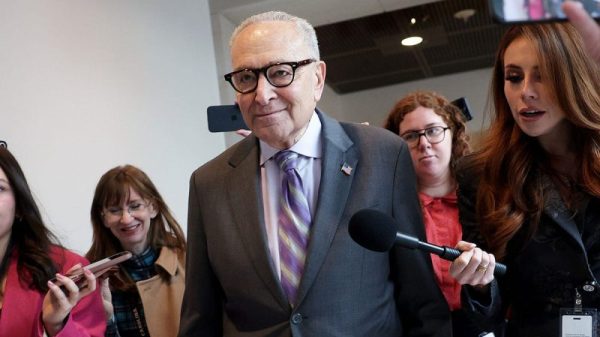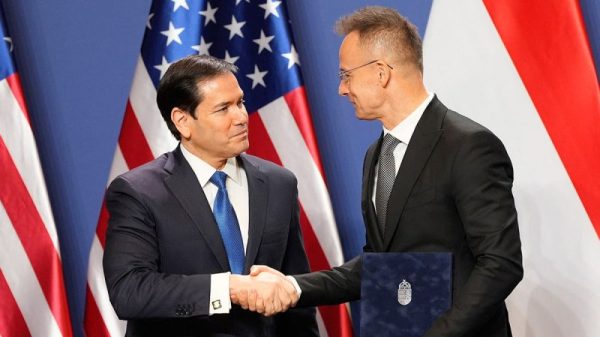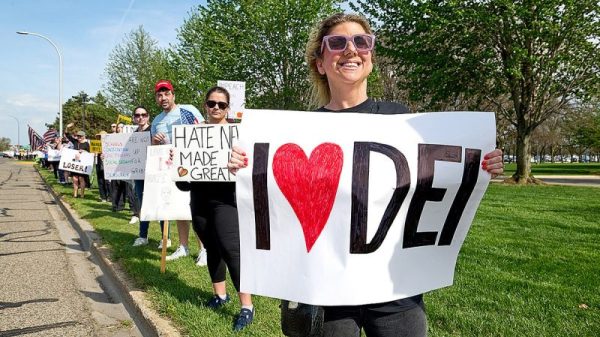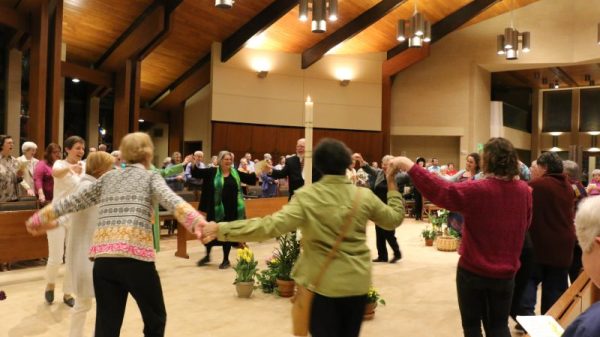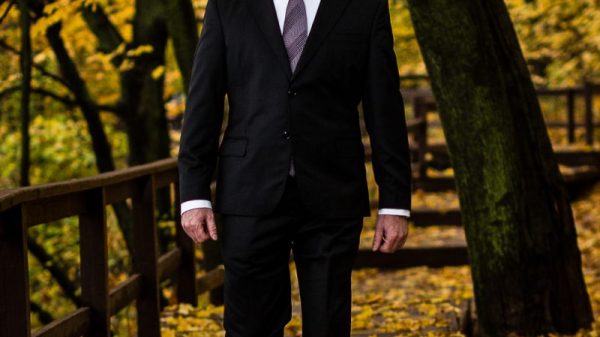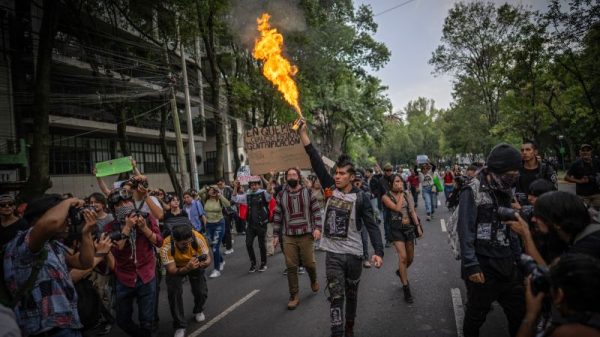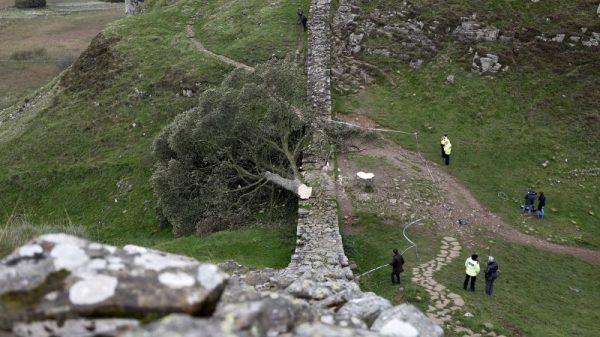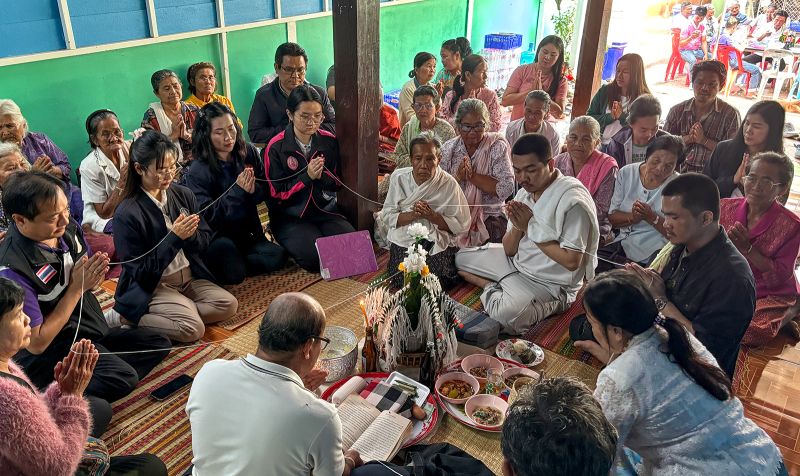In the crowded room, a local spiritual leader chanted verses in the Isan dialect of northeast Thailand while attendees knelt on woven mats.
Between their clasped hands ran a single white string as they performed a ceremony to welcome and protect the man who sat among them: Surasak Rumnao, who had been held hostage in Gaza for more than a year.
Dressed in a white shirt with closely cropped hair, Surasak sat beside his friend Pongsak Thaenna, who was also abducted near the Gaza border during Hamas’ deadly attack on October 7, 2023.
The two men had kept each other going throughout their 15 months in captivity; now, they smiled as family and friends took turns tying sacred white threads around their wrists to bestow blessings and ward off evil.
Of the 251 people taken hostage by Hamas militants on October 7, many were migrant workers from poor rural parts of Asia, who had gone to work in Israel’s agricultural, construction and health care sectors to send money back home. Among them were Surasak and Pongsak – two of the five Thai workers freed in January under a ceasefire deal between Hamas and Israel.
Like both men, many of the Thai abductees and victims were from Udon Thani, one of the country’s poorest provinces where jobs are hard to come by – pushing young people to overseas destinations or large cities like Bangkok for work.
At Surasak’s return party, the room was filled with elderly community members; most of their working-age children had left the small town.
After the ceremony, partygoers dug into a home-cooked feast of beef soup, fermented fish, sticky rice and minced meats, before celebrating late into the night with Thai liquors. But concerns also lingered for the remaining hostages in Gaza, including one Thai national.
“I want those who have been captured to be released quickly. We are trying to pray that they will be released, not just the Israelis but also the remaining Thai,” Surasak said.
“Having been in that situation, we understand the feeling of waiting for someone to come and help us.”
15 months in captivity
Like so many men and women from Thailand’s rural Isan region, Surasak, now 32, has been working away from home since he was a teenager – job-hunting in Bangkok after high school, then doing a stint at a factory in Taiwan.
Before the abduction, he had spent five years growing tomatoes, eggplants, figs and apples on Israeli farms.
The pay was much better than what he could earn back home, he said – to the point where he could fund his siblings’ education, give his mother money for daily spending, and support the family’s rice farm.
The impact of foreign wages is clear in Surasak’s village of Ban Dung, where new houses have popped up on dirt roads and cracked asphalt streets. His home, painted an eye-catching blue and turquoise, is one of the brightest, and has been expanded and renovated several times over the years.
But that steady flow of income and improvement came to a shuddering halt on October 7 as Hamas militants poured across the Gaza border and began their murder and kidnap spree across southern Israel.
After hearing word of the attacks, Surasak was trying to rush back to his employer’s farm when he was abducted. He and the other captured workers were tied up, put in the back of a pickup truck and told not to look around as the vehicle drove off.
The hostages were split up after they reached Gaza but Surasak and Pongsak stayed together, sleeping and eating side-by-side throughout the 15 months in captivity. Surasak said they weren’t mistreated, and were fed pita bread and cheese, with a portion of meat once a week.
Back in Ban Dung, his mother, Kammee, was anxiously contacting various Thai government agencies, who eventually confirmed that her son was one of the hostages and was still alive.
At first, Surasak would ask his captors when he would be released – and they would assure him, “Tomorrow, the day after tomorrow, in three days, next month,” he said. “After asking frequently, I stopped asking because I didn’t want to have expectations from them anymore.”
Instead, he tried to “have conversations and show them my sincerity, that I am not a soldier and have no involvement with them,” he said. He joked with his captors, even playing cards with them, using hand-drawn decks when no others were available, and sketching games of checkers.
Throughout it all, he kept track of the days by looking at the date on the guards’ wristwatches – though he had no other news about what was happening on the outside.
He and Pongsak would “encourage each other by saying that they wouldn’t do anything to us. They would release us eventually as negotiations were underway,” he said. “We trusted both the Israeli side and our Thai side, along with all the agencies that were doing their best to help us. We had to have faith in them.”
When the Hamas guards finally told Surasak in January that he would be released, he didn’t believe them, he said.
But before he knew it, they were in a car, then on a plane – then reuniting with tearful families at Bangkok airport in front of journalists and Thai officials.
Joyous return
Surasak’s return home was met with joy and relief, with the ceremony on Saturday meant to “call back” his spirit – a common practice after somebody has endured a hardship.
The community believes the loss of a person’s spirit or life force from their body can cause poor health or wellbeing – so on Saturday they offered gifts to entice the spirit back and restore Surasak’s happiness.
“Come back, good spirit,” the attendees chanted together. “Come back already!”
His mother said she had waited a long time for that day.
“I’m so happy and proud that my child has returned to be in our embrace once again,” she said. “My child is like the pillar of the family, and I wouldn’t just let that go. Seeing my child come back gives me so much hope, and I’m truly delighted.”
As he adjusts to being back home, Surasak says he has no plans to return to Israel. His family also wants him to stay in Thailand.
“I think I have enough. I will use the knowledge I’ve gained to improve life in our own hometown,” he said. “I want to live a life farming and cultivating the land of my ancestors.”
But his thoughts aren’t far from the remaining hostages in Gaza, and whether the ceasefire deal will hold long enough to get them all out.
In the last round, the deal looked on shaky ground after Hamas accused Israel of violating its commitments and said it would postpone the hostage releases – though it eventually went ahead after talks with mediators in Egypt and Qatar. Six Israeli hostages are scheduled to be released next on February 22; it’s not clear when the remaining Thai hostage will be freed.
“I hope that those who are still inside remain strong. They will eventually be able to get out,” Surasak said. “Sometimes the exchanges take time… We just have to wait.”











